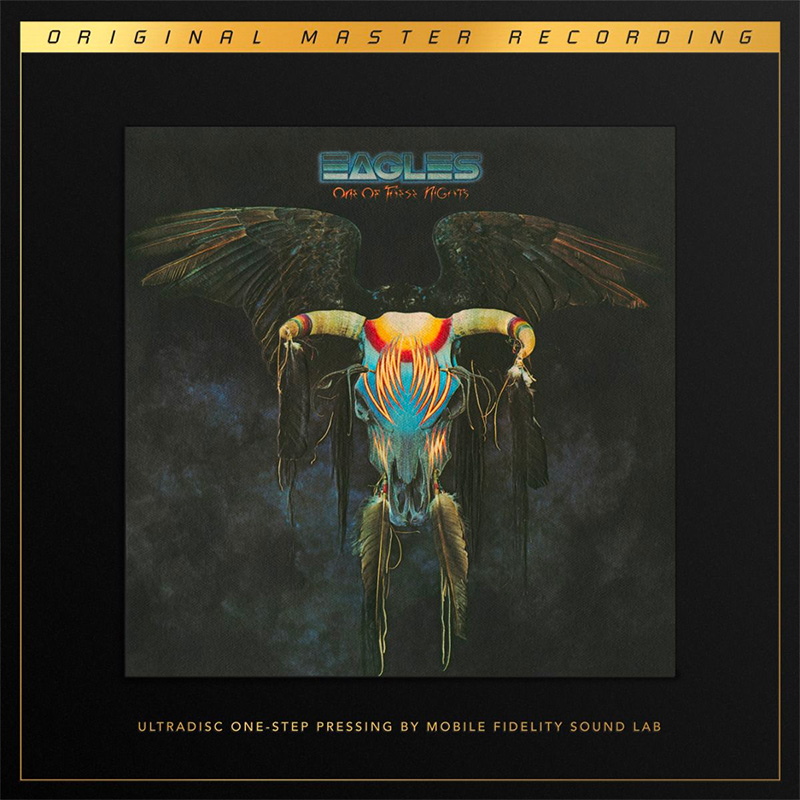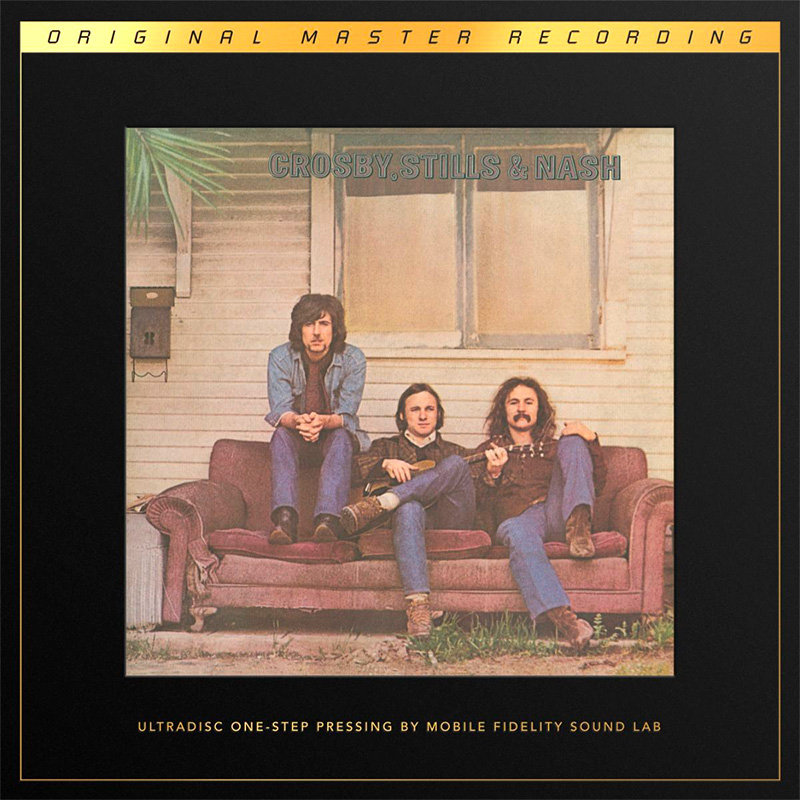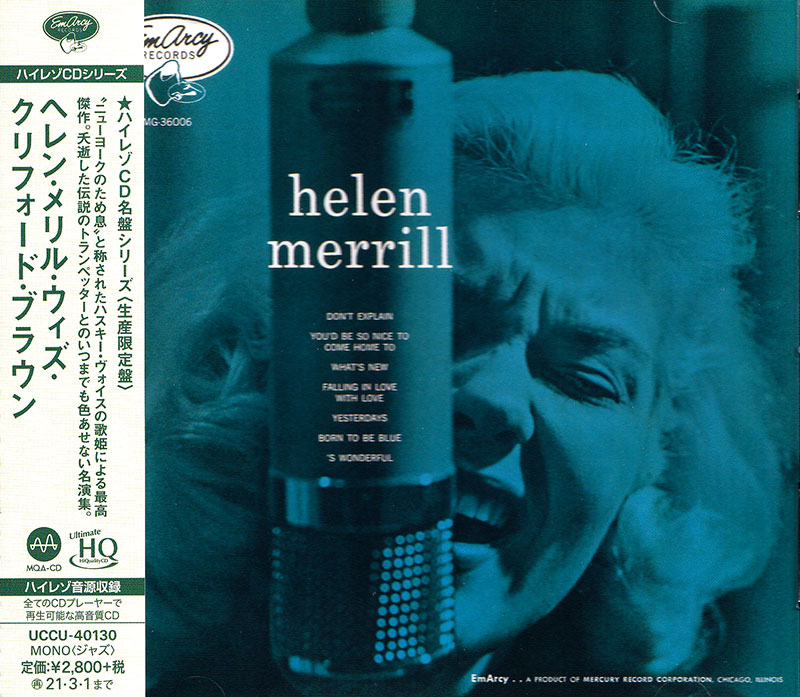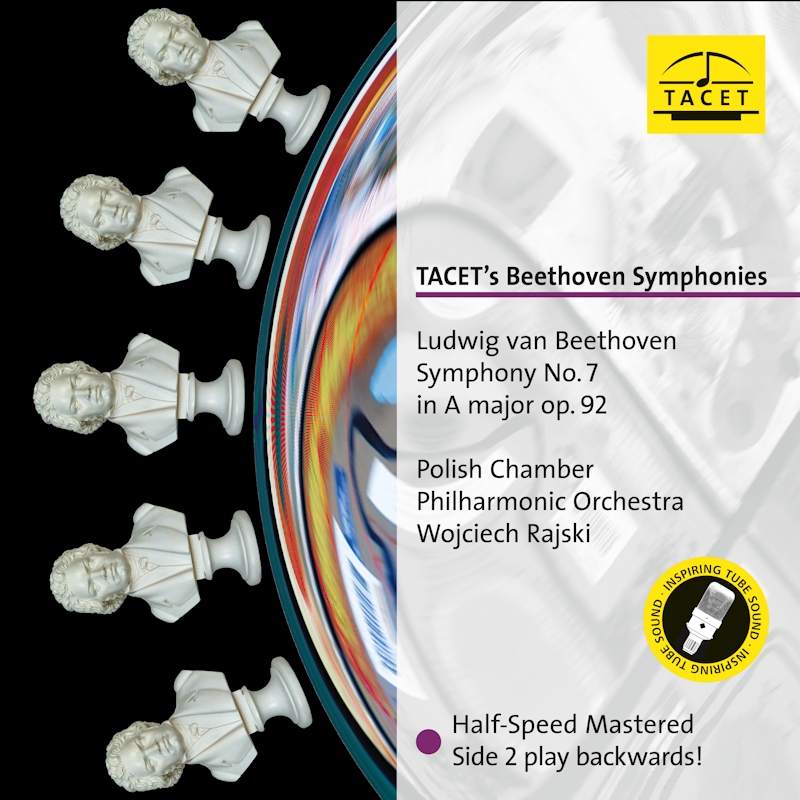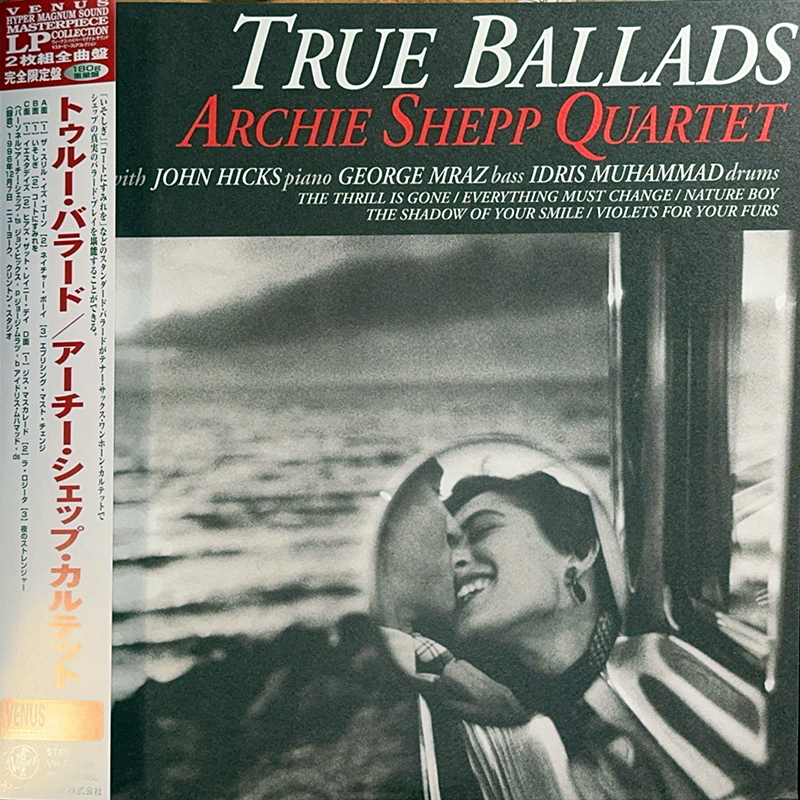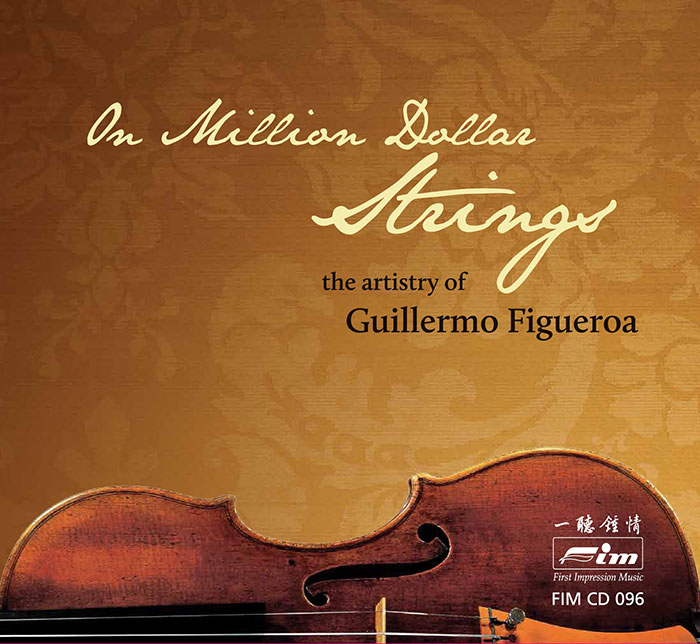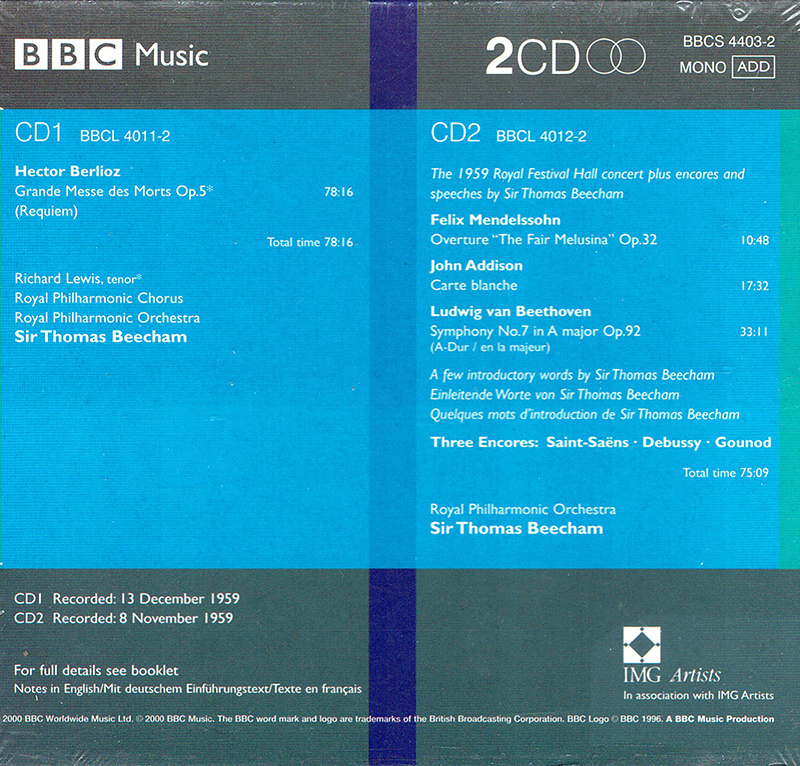Logowanie
OSTATNIE EGZEMPLARZE
Jakość LABORATORYJNA!
ORFF, Gundula Janowitz, Gerhard Stolze, Dietrich-Fischer Dieskau, Deutsche Oper Berlin, Eugen Jochum
Carmina Burana
ESOTERIC - NUMER JEDEN W ŚWIECIE AUDIOFILII I MELOMANÓW - SACD HYBR
Winylowy niezbędnik
ClearAudio
Essence MC
kumulacja zoptymalizowana: najlepsze z najważniejszych i najważniejsze z najlepszych cech przetworników Clearaudio
Direct-To-Disc
PIAZZOLLA, ChamberJam Europe
Tangos del Ángel y del Diablo
Direct-to-Disc ( D2D ) - Numbered Limited Edition
BERLIOZ, BEETHOVEN, BBC Symphony Orchestra, Royal Philharmonic Orchestra, Sir Thomas Beecham
Grande Messe des Morts / Symphony No. 7
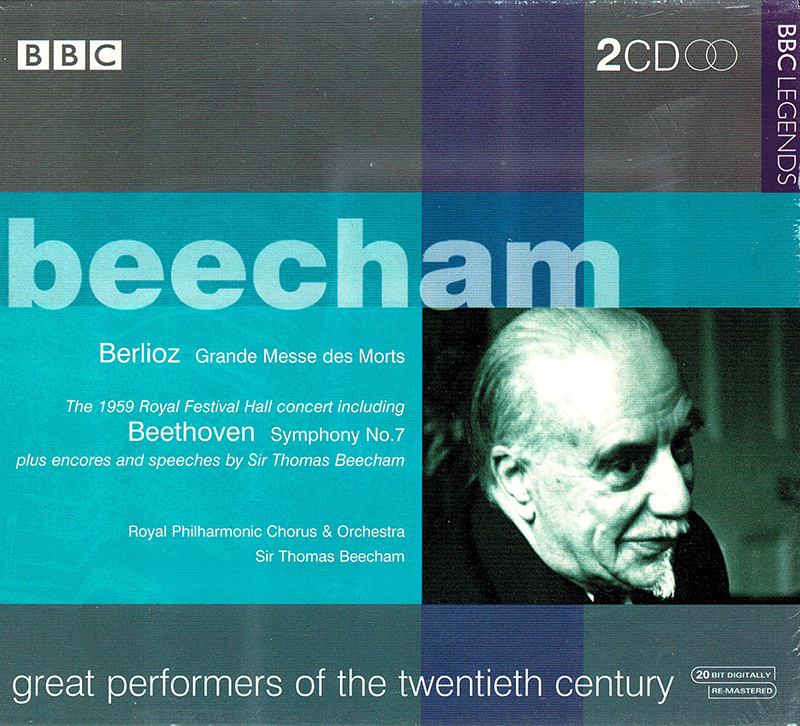
The Royal Albert Hall in 1951 proved a tricky environment for recording; despite every engineering effort the sound quality of the RPO Corsaire – percussive tuttis, tremulous legato strings – is unappealing, whereas the Trojan March, recorded in Bristol a few months later, sounds deep, even stodgy. Yet even through Le corsaire there shine Beecham’s outstanding qualities as a Berliozian; and they are still more ingratiatingly present in a grand account of King Lear (RFH, 1954) and an excellent Harold in Italy, recorded in the Usher Hall during the 1956 Edinburgh Festival. Beecham’s Berlioz is at the same time careful in its consideration of the composer’s notated intentions (the dynamic range of this recording shames many recent studio CDs of Berlioz), and daring in its exploitation of total control to enlarge phrases, zip ahead with a new section and attain from a melting account of slower music climaxes of dizzy abandon. Riddle’s strong-toned viola-playing responds admirably to Beecham’s determination, all too rarely emulated, to take literally Berlioz’s request to accelerate, in the first movement, to something like double the original speed. The middle movements of Harold are particularly enjoyable: the opening Adagio, however, is marred by a fit of coughing unseasonable in August, even for Edinburgh. Julian Rushton
